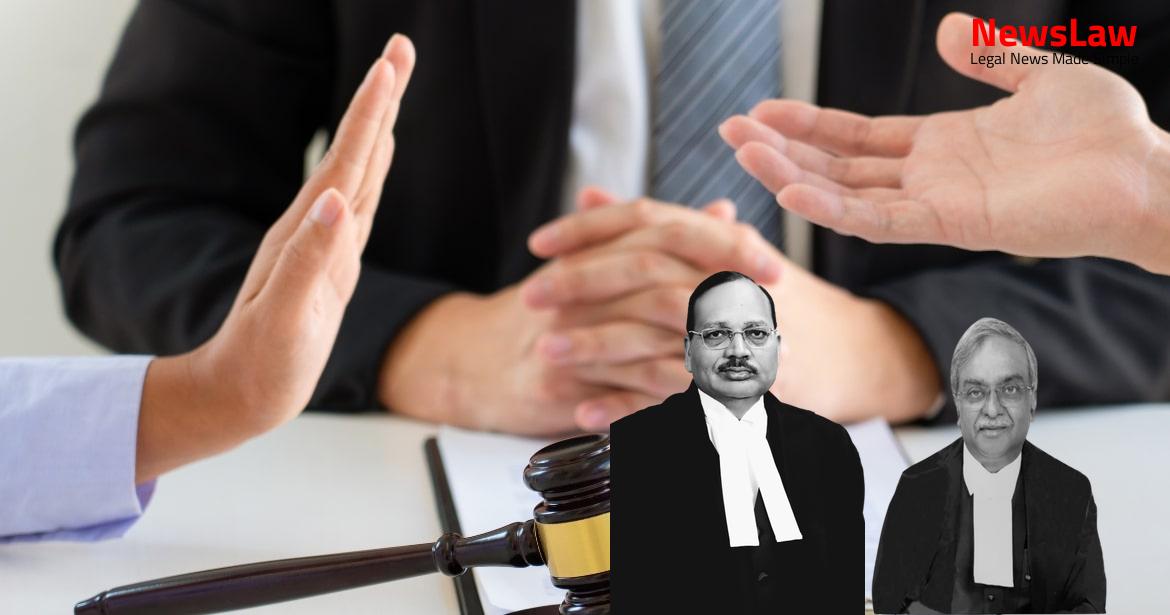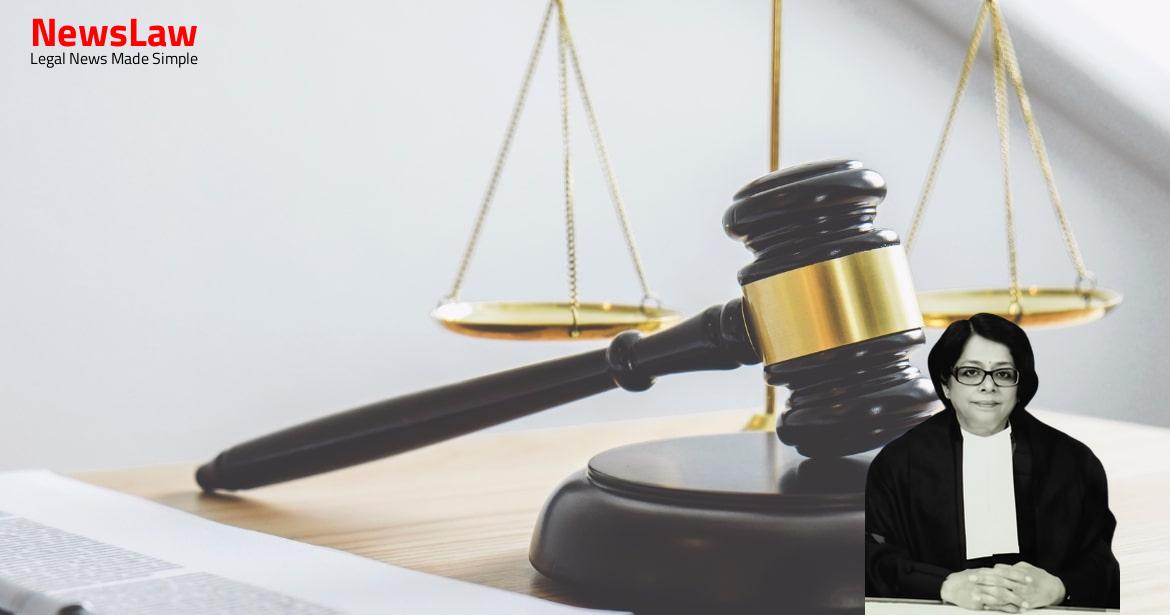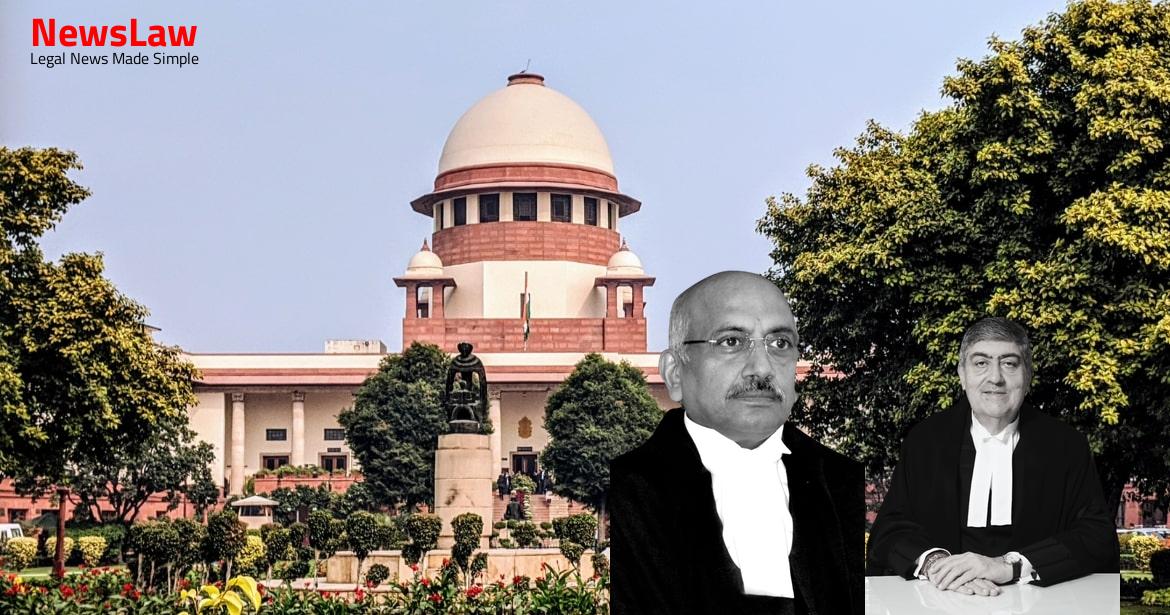In a recent court case, a critical examination of contradictions in legal evidence played a pivotal role in determining the outcome. The court’s meticulous analysis of discrepancies in witness testimonies and postmortem reports highlighted the challenges of establishing guilt beyond a reasonable doubt. This case underscores the importance of thorough scrutiny of evidence in the pursuit of justice.
Facts
- The Sessions Judge held that the deceased was an accused in the murder of Rajesh’s father.
- The Sessions Judge convicted Rajaram, Rajesh, Subhash, Rampal, Shiv Dayal, and Gyanvati for offenses punishable under Sections 148 and 302/149 of the IPC.
- The appeal before the High Court stemmed from a judgment of the Sessions Judge in Sessions Trial No 499 of 2002, arising from Case Crime No 61 of 2002 registered under Section 148 and Section 302 read with Section 149 of the Indian Penal Code 1860 at Police Station Dataganj District Badaun.
- The deceased, Surender, was accused in the murder of Rajesh’s father, with the trial ongoing.
- Postmortem conducted on Surender revealed nine injuries on 17 February 2002.
- The First Information Report was lodged on 16 February 2002 by PW-1 Vedram.
- Accused individuals arrived armed at the scene, and the incident involved firing from pistols, assaults with weapons, and the informant fleeing to inform his father.
- Prosecution’s case relied heavily on evidence from PW-1 and PW-2, with Vedram being the informant and Jagdish as an alleged eyewitness.
- The appeals before the Court were filed by Subhash (Accused No. 3) and Gyanvati (Accused No. 6).
Also Read: Electoral Malpractices in Mayor Election
Arguments
- Material improvements in the testimony of PW-1 are evident on comparing his complaint, 161 statement, and deposition
- PW-2, Jagdish, described as a chance witness, lacked detailed knowledge of the incident and his testimony improved during deposition
- Contradictions in the evidence raised by the appellants’ counsel, indicating potential for the accused to be acquitted
- The injuries recorded in the postmortem report do not align with the prosecution’s claim of multiple assailants and multiple firearm injuries
- Doubt cast on PW-1 being a reliable eyewitness and PW-2’s credibility due to significant inconsistencies in their testimonies
- Significance attributed to the prosecution’s failure to examine Chetram, the deceased’s father, who was allegedly present during the incident
- The counsel representing the State of Uttar Pradesh highlighted that the contradictions mentioned by the appellants are minor, according to the High Court’s affirmation of the conviction judgment.
- The State Counsel, Mr. Sanjay Kumar Tyagi, argued that the contradictions are not substantial and were considered minor by the High Court during the confirmation of the conviction.
- Emphasis was placed on the findings recorded by the High Court in its impugned judgment by the appellants, in an attempt to highlight specific points.
- The State Counsel emphasized that the alleged contradictions mentioned on behalf of the appellants are minimal and do not undermine the conviction judgment.
Also Read: Balancing Power and Transparency: Electoral Bonds Struck Down, Disclosure Mandated
Analysis
- Material contradictions found in the evidence of PW-1 and PW-2
- Contradictions were not noticed by the learned Sessions Judge or the High Court
- The High Court considered the contradictions minor
- Original role attributed to accused who fired upon the deceased with country made pistols
- Informant mentioned a prior case involving the murder of accused Rajesh’s father
- Presence of PW-1 and PW-2 at the spot gravely doubted
- Postmortem report indicates inconsistencies with the prosecution’s case
- PW-2’s reliability questioned due to being a rustic villager examined four years after the incident
- Evidence rests primarily on the deposition of PW-1 and PW-2
- Contradictions in the evidence were of fundamental nature that went to the root of the prosecution’s case.
- The accused-appellants Subhash (A-3) and Gyanvati (A-6) are entitled to the benefit of doubt.
- The prosecution was not obliged to examine every witness present at the scene of the offense, but in this case, the failure to examine Chetram, the deceased’s father who was allegedly present, is significant.
Also Read: Recall of Resolution Plan Approval: Legal Analysis
Decision
- The appellants are acquitted and shall be released from custody.
- Pending applications are disposed of.
- The appeals are allowed and the impugned judgment and order of the High Court of Judicature at Allahabad dated 11 January 2019 in Criminal Appeal No 5307 of 2008 are set aside.
Case Title: SUBHASH Vs. THE STATE OF UTTAR PRADESH (2022 INSC 127)
Case Number: Crl.A. No.-000158-000158 / 2022



